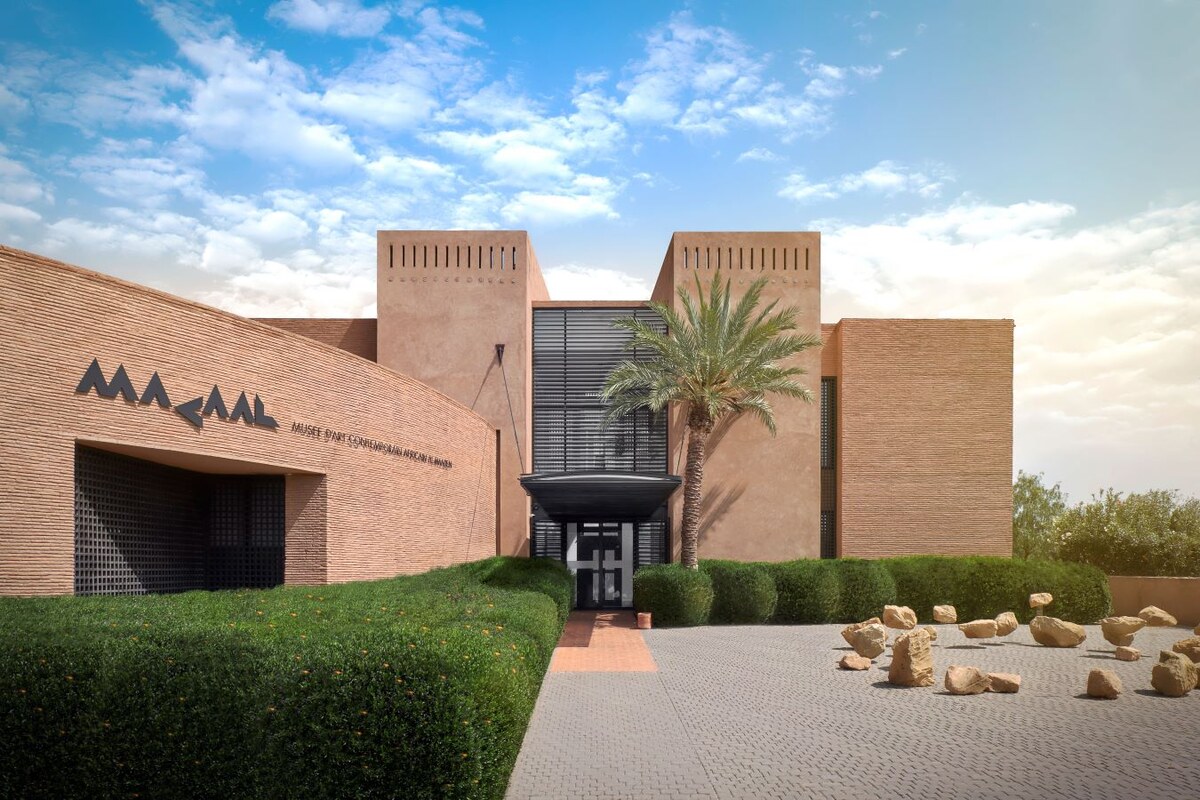QUETTA: Earlier this year, Danial Shah, a Pakistani photographer and filmmaker currently pursuing a doctorate in visual and performing arts in Brussels, got an idea: to travel from the land of the colonizer, Britain, which had ruled the Indian subcontinent from 1858 to 1947, to the land that was colonized, present day Pakistan — but without flying.
Thus began a journey that took him from London to the southwestern Pakistani town of Quetta, the city of his birth, via trains, ferries, buses and taxis at a cost of $2,509.
“I wanted to start my journey from London, the reason is that Britain ruled our country for a long time, colonized us and it is Britain that gives us [Pakistanis] visas with great difficulty,” Shah, a 35-year-old documentary filmmaker and photographer, told Arab News in an interview in Quetta.

Pakistani photographer and backpacker Danial Shah, who travelled from London to Quetta in 58 days via trains, ferries, buses and taxis, uses his phone in a street in Quetta on September 3, 2024, during an interview with Arab News. (AN Photo)
“So I thought if I get a visa, I will start my journey from the place where the colonizer lives and reach the place which they colonized.”
Spending his early childhood in Quetta, Shah was always thrilled by the stories of foreign travelers who frequented the area and often arrived using what was dubbed the historic Quetta-London Road, once a popular route for international tourists and considered a ‘gateway’ to Europe.
“I often used to see foreigners here and when you asked someone their story, they would say, ‘We have come from Germany, from London, traveling through Turkiye and Iran’,” Shah said. “So, when I found time, I thought I should go on this journey also.”

This map, shared by Pakistani photographer and backpacker Danial Shah, shows his journey from London to Quetta. Shah’s 58-day-journey brought him home to Quetta via trains, ferries, buses and taxis at a cost of $2,509. (Photo courtesy: Danial Sheikh)
Frequent public commuting through the Quetta-London route, stretching over thousands of miles, began after the end of World War I and people even used it to travel to Saudi Arabia to perform Hajj, according to Dr. Irfan Ahmed Baig, a Quetta-based historian and author of the Urdu-language book ‘Quetta My City.’ European tourists choose the route to enter Turkiye via Greece and continued onwards to the Middle East and Asia. The route was diverted to Central Asia from Afghanistan, from where to leads to India and Bangladesh via Pakistan.
“A Quetta-London bound bus service was started in the 1950 but it was suspended due to unknown reasons,” Baig told Arab News. “During the Soviet Union’s incursion on Afghanistan, tourist movement through this route declined due to security reasons.”
Shah’s journey through a stretch of the route also did not come without difficulty as he faced strict border security checks on account of holding a Pakistani passport, considered one of the weakest travel documents according to global rankings, and amid fears about human smuggling and illegal migration.

This photo, posted on August 11, 2024 on Instagram, shows Pakistani photographer and backpacker Danial Shah, who travelled from London to Quetta in 58 days via trains, ferries, buses and taxis, at the Albania Museum in Tirana, Albania. (Photo courtesy: Danial Shah)
“At various border crossing points, I was the only one off-boarded from buses and questioned by border security forces,” he said.
But he powered on and the journey that began in London on July 3 took him through Europe, the Balkans and the Middle East, to Pakistan’s Balochistan province on August 21.
“From London, I traveled to France. From France, I went to Italy, where I took a boat to Croatia. From Croatia, I went to Serbia, Serbia to Bosnia, and from Bosnia to Montenegro, Albania,” the University of Antwerp student said.

“From Albania, I entered Greece. Then I took a boat from Greece to Turkiye and from Turkiye I took a bus to Iran. From Iran I traveled through buses and taxis and reached Pakistan.”
He said he was grateful for the people he met along the way and the hospitality and warmth he was offered.
“I enjoyed Bosnia the most, followed by Albania, and then Turkiye and Iran, because their manner of hospitality is similar to our Quetta,” Shah said.
His next plan is to save up for journeys to ever new countries and cultures.

This photo, posted on August 22, 2024 on Instagram, shows Pakistani photographer and backpacker Danial Shah, who travelled from London to Quetta in 58 days via trains, ferries, buses and taxis, in Iran. (Photo courtesy: Danial Shah)
“I wish to plan a year-long journey after saving some money to see more countries and additional stay,” Shah said, “because I met many people who were on the same route but traveling to Central Asia via Iran and Afghanistan to Vietnam.”




















